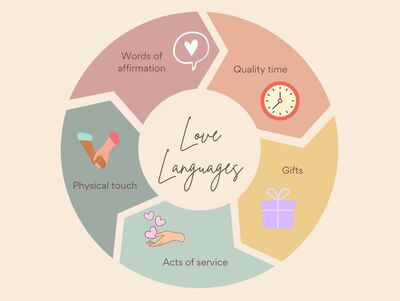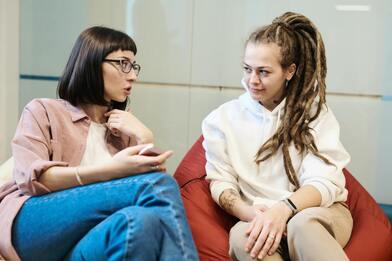|
We most likely all agree that good communication is one of the key factors to any successful relationship. Communication with our partner happens daily, whether it is verbally or non-verbally. We are in constant interaction with other people, especially in our romantic relationships. Now what happens if our ways to think, feel and speak are very different from out partner’s? What if we use words and expressions differently? What if our views, values, practices that are familiar to us seem contrary to the ones our partner has? Differences easily lead to misunderstandings, frustration, disconnection and conflict. This is where intercultural communication comes into the picture. It is, simply speaking, about understanding what happens when people from different cultures communicate with each other. It is about awareness of differences, reflection upon patterns and then learning and applying intercultural competences as a solution. The goal of marriage is not to think alike, but to think together." 1. Language barrier Even with a common language, intercultural couples have a different use of terms and context, body-language, semantics, pragmatics, as well as non-verbal communication, such as facial expressions, gestures, proxemics or silence. Even the smallest differences of language use can lead to misunderstandings. As an example, my partner and I, both non-native English speakers, had a different interpretation and use of the word “should”. For one, it meant more like an obligation, for the other, it indicated a willingness to do something, for logical reasons. The sentence “You should come pick up our child” can therefore either mean that the partner strongly expects it, or it can be more meant as a question, similar to “I think it would make sense if you picked up our child, could you do that?” 2. Cultural differencesEvery single person is culturally conditioned since birth. Besides growing up learning languages, we grow up learning values and practices of our culture. These can include gender roles, religious beliefs, holidays and celebrations, friends and networks, child raising practices or general views on life matters. Most people tend to be ethnocentric, which means they believe their own culture to be superior to others, “My cultural practice is the better ones and you need to adapt”. In my marriage, we had very different views when it comes to child raising: When to give our children to daycare, how to put them to sleep, sleep training yes/no, co-sleeping yes/no, breastfeeding practices etc. These views are to a big part culturally influenced and I find it incredibly hard to find compromises and solutions.
Studying culture without experiencing culture shock is like practicing swimming without experiencing water.” - Geert Hofsted My favourite concept of communication is the 5 love languages by Marshall Rosenberg. The way we give and receive love, whether through acts of service or maybe physical touch can also strongly be influenced by culture, therefore I highly recommend talking with the partner about it and figuring out how they feel loved the most. In my relationships, I had to learn that good communication does not come automatically. It has to be actively learned. I needed to make it a habit to not assume things, but instead ask for clarification and reassurance even for the smallest things. “I am sorry, could you please explain this better?”, “Hey, I dont understand why you are laughing” and “Am I understanding this correctly?” are examples of phrases that may seem odd to use at first, but make all the difference if we want to avoid misunderstandings and improve communication with our partner. If you are interested in learning more about intercultural communication, you can visit our website and take the self-study online course. You will continue to suffer if you have an emotional reaction to everything that is said to you. True power is sitting back and observing everything with logic. If words control you that means that everyone else can control you.” To say that a person feels listened to means a lot more than just their ideas get heard. It's a sign of respect. It makes people feel valued.” * Polyamourous relationships are included also for the concepts of this blog. Nathalie IhalmoIntern at Familiary
0 Comments
Leave a Reply. |
blogi - blogAjatuksia ja kokemuksia elämästä kahden kulttuurin keskellä.
Reflections and experiences from the life of intercultural families. kategoriat
All
osallistuToivotamme sinut lämpimästi tervetulleeksi osallistumaan blogiyhteisöömme: lue, kommentoi ja kirjoita!
Kirjoittajina voivat toimia kaikki kahden kulttuurin arkea elävät ja aiheesta kiinnostuneet. Kynnystä kirjoittamiselle ei tule nostaa liian korkealle ja kirjoittaa voi joko omalla nimellä tai nimimerkillä. Blogissa esitetyt näkökannat ja mielipiteet ovat kirjoittajien omia, eivätkä edusta Familian kantaa. Kahden kulttuurin arki on itsessään kiinnostavaa ja siitä kirjoittaminen voi avata myös itselle uusia näkökulmia! Blogikirjoituksia voi tarjota sähköpostitse (info@ familiary.fi) tai yhteydenottolomakkeen kautta. Lopullisen valinnan julkaistavista jutuista tekee Familian henkilökunta. Tervetuloa mukaan! participate!We warmly welcome you to participate in our blog community: read, comment, and write!
Anyone who lives and works in the world of intercultural families and is interested in the topic is welcome to contribute. The threshold for writing should not be too high, and you can write either under your own name or under a pseudonym. Keep in mind that the views and opinions expressed in the blog are those of the authors and do not represent the position of Familia. The everyday life of intercultural families is interesting and writing about it can also open new perspectives for you! Your story matters and helps to raise awareness about the opportunities and challenges within intercultural families. Blog contributions can be submitted by e-mail (info@ familiary.fi) or via our contact form. Final selection and edition of the stories to be published will be conducted by our staff. Welcome to join us! |
|
|
© Familia 2024




 RSS Feed
RSS Feed

